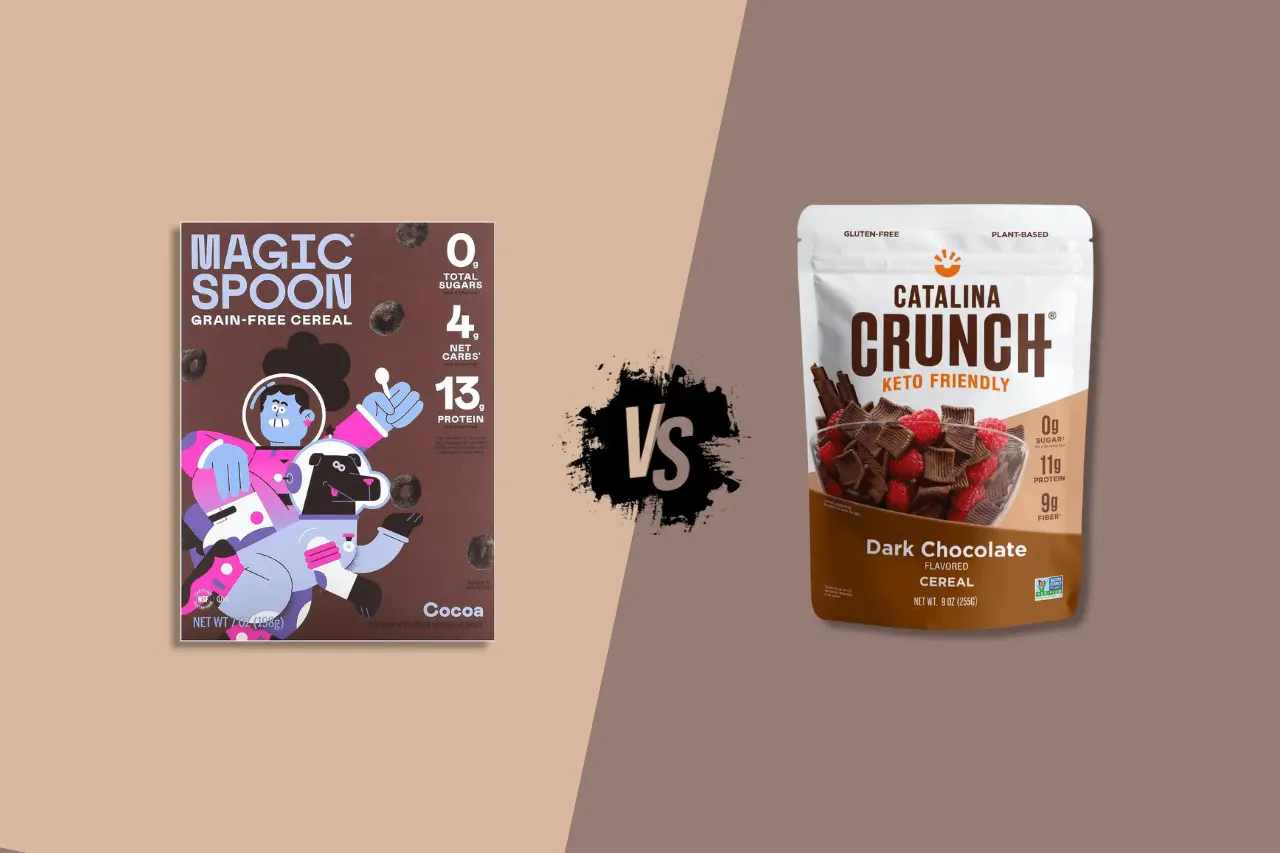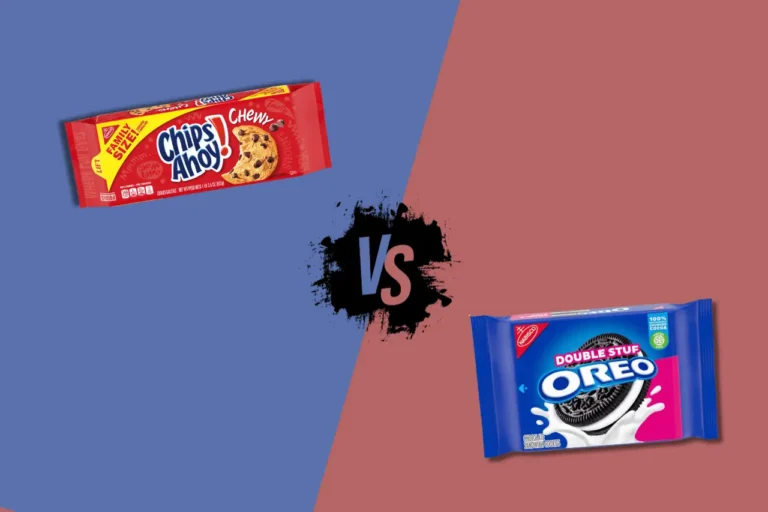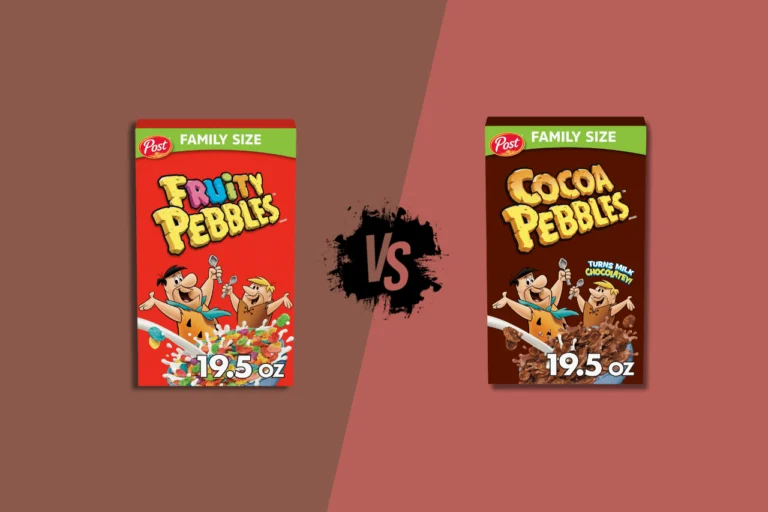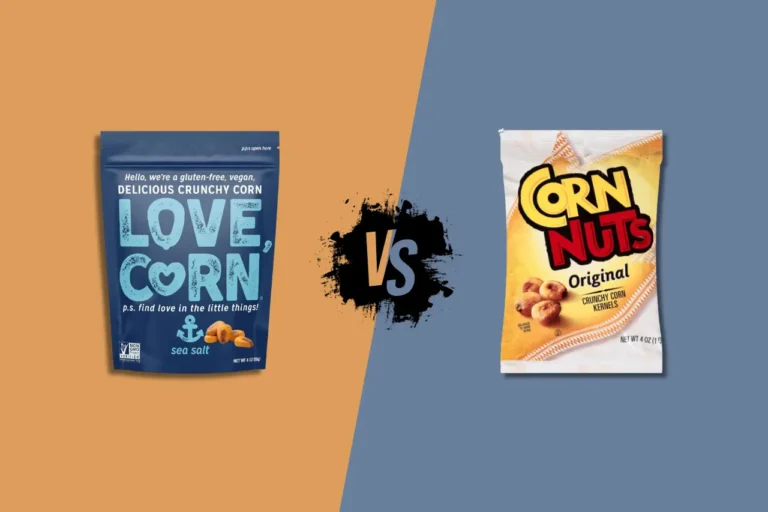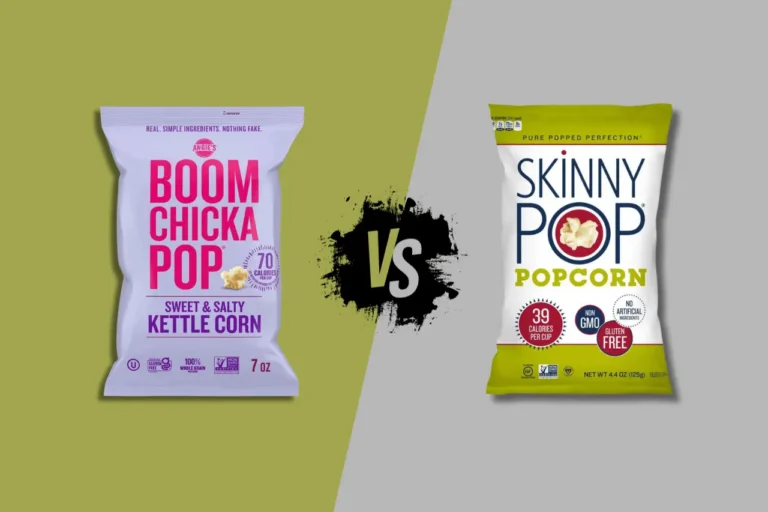You’re standing in the cereal aisle (or scrolling through your third online grocery tab), staring at two colorful boxes that promise the impossible: cereal that tastes like your childhood favorites but won’t spike your blood sugar or ruin your diet.
Magic Spoon on the left. Catalina Crunch on the right. Both screaming “HIGH PROTEIN! ZERO SUGAR! KETO-FRIENDLY!”
And both cost around $10-12 per box.
Your brain is doing the math: that’s roughly $1 per bowl. For cereal. The same amount you’d spend on an entire week of regular Cheerios.
So here’s the million-dollar question (or at least the twelve-dollar question): which one is actually worth it?
I’ve compared the ingredients, analyzed the nutrition, and I’m going to help you figure out which one deserves a spot in your pantry—or if either of them do.
Let’s settle this debate once and for all.
What Exactly Are Magic Spoon and Catalina Crunch?
Before we dive into the showdown, let’s get clear on what these cereals actually are.
Magic Spoon launched in 2019 with a simple pitch: remember how much you loved Froot Loops and Frosted Flakes as a kid? What if you could eat that again, but with 12-14g protein, zero sugar, and only 4g net carbs?
They use milk protein (whey and casein), natural sweeteners (allulose and monk fruit), and come in nostalgic flavors like Fruity, Cocoa, Frosted, Peanut Butter, Blueberry Muffin, and Cinnamon Roll.
Catalina Crunch took a different approach. They created their own proprietary “Catalina Flour” blend (pea protein, potato fiber, corn fiber, chicory root fiber) and built cereals that are also high-protein, zero-sugar, and keto-friendly.
Their flavor lineup includes Dark Chocolate, Cinnamon Toast, Honey Graham, Maple Waffle, Chocolate Peanut Butter, and even Mint Chocolate.
Both brands target the same audience: keto dieters, fitness enthusiasts, people with diabetes, and anyone who’s tired of breakfast options that taste like cardboard or spike their blood sugar.
But they take completely different paths to get there. And that’s where the decision gets interesting.
The Ingredient Showdown: What’s Actually in These Boxes?
Let’s talk about what you’re really eating when you pour a bowl.
Magic Spoon Ingredients
Primary base: Milk protein blend (whey protein concentrate and casein)
Other key ingredients:
- Sweeteners: Allulose and monk fruit extract
- Fats: High oleic sunflower oil and avocado oil
- Tapioca starch (for texture)
- Inulin from chicory root or agave (prebiotic fiber)
- Natural flavors
- Salt
That’s it. Clean, minimal, straightforward.
Catalina Crunch Ingredients
Primary base: Catalina Flour (pea protein, potato fiber, non-GMO corn fiber, chicory root fiber, guar gum)
Other key ingredients:
- Tapioca flour
- Fats: High oleic sunflower oil and/or coconut oil
- Sweeteners: Stevia and monk fruit extract
- Baking powder
- Natural flavors
- Sea salt
- Calcium carbonate
Also clean. Also minimal. But with some key differences.
The Ingredient Winner: Magic Spoon (Slightly)
Here’s why Magic Spoon edges ahead on ingredients:
Protein source: Milk protein (whey and casein) is considered the gold standard for muscle building and satiety. It’s a complete protein with an excellent amino acid profile, particularly high in leucine (critical for muscle protein synthesis).
Catalina Crunch uses pea protein, which is also a complete protein and great for vegans, but it’s slightly less bioavailable and lower in leucine.
Sweeteners: Magic Spoon uses allulose (a rare sugar that tastes like sugar but doesn’t impact blood glucose) plus monk fruit. This combo tends to have a cleaner, more neutral sweetness.
Catalina Crunch uses stevia and monk fruit. Stevia can have a bitter, licorice-like aftertaste that some people find off-putting. Not everyone notices it, but if you’re stevia-sensitive, it matters.
Fats: Magic Spoon uses avocado oil, which is rich in heart-healthy monounsaturated fats and has a great omega-6 to omega-3 ratio.
Catalina Crunch often uses coconut oil, which is high in saturated fat (4g per serving). While coconut oil contains beneficial MCTs (medium-chain triglycerides), the high saturated fat content can raise triglyceride levels in some people.
However, Catalina Crunch has one ingredient advantage: they use sea salt instead of regular salt. Sea salt is less processed and contains trace minerals. It’s a small win, but worth noting.
Bottom line: If you can tolerate dairy, Magic Spoon has a slight edge on ingredient quality. If you’re vegan or dairy-free, Catalina Crunch is your only option in this matchup.
Nutrition Face-Off: Let’s Look at the Numbers
Here’s where things get really interesting. Let’s break down the macros side-by-side.
Calories
Magic Spoon: 140-170 per serving
Catalina Crunch: 110 per serving
Winner: Catalina Crunch
If you’re counting calories for weight loss, Catalina Crunch saves you 30-60 calories per bowl. Over a week of daily cereal eating, that’s 210-420 calories—basically an extra meal.
Neither cereal provides “empty calories” from sugar, so every calorie comes with protein, fiber, or healthy fats.
Protein
Magic Spoon: 12-14g per serving
Catalina Crunch: 11g per serving
Winner: Magic Spoon
Magic Spoon delivers slightly more protein, and more importantly, higher-quality protein. Whey and casein are complete proteins with excellent bioavailability—your body absorbs and uses them efficiently.
Whey is particularly rich in leucine, the amino acid that triggers muscle protein synthesis. If you’re lifting weights, trying to build muscle, or just want maximum satiety from breakfast, this matters.
Catalina Crunch’s pea protein is also complete and still delivers solid muscle-building benefits, especially for vegans. But head-to-head, dairy protein wins.
Fat
Magic Spoon: 7-9g per serving (1g saturated)
Catalina Crunch: 5-6g per serving (4g saturated)
Winner: Magic Spoon
Magic Spoon has more total fat, but here’s the key: it’s mostly unsaturated fat from avocado oil and sunflower oil. Only 1g is saturated fat.
Catalina Crunch has less total fat but 4g of saturated fat (from coconut oil). That’s 20% of your daily limit in one bowl of cereal.
If you’re watching saturated fat for heart health, Magic Spoon is the better choice.
Fiber
Magic Spoon: 1-2g per serving
Catalina Crunch: 9g per serving
Winner: Catalina Crunch (by a landslide)
This isn’t even close. Catalina Crunch delivers a massive 9g of fiber per serving—36% of your daily needs in one bowl.
Magic Spoon’s 1-2g is frankly disappointing. That’s barely more than a slice of white bread.
Catalina sources fiber from potato fiber, corn fiber, chicory root, and guar gum—a blend of soluble and insoluble fiber that feeds your gut bacteria and promotes digestive regularity.
If you struggle with fiber intake (and most Americans do), Catalina Crunch is a game-changer. That 9g will keep you full for hours and support your gut microbiome.
Sodium
Magic Spoon: 150-210mg per serving
Catalina Crunch: 110-150mg per serving
Winner: Catalina Crunch
Catalina Crunch is lower in sodium across the board. If you’re watching salt intake for blood pressure management, this is the better option.
Plus, Catalina uses less-processed sea salt, which retains trace minerals that regular salt loses during processing.
Vitamins and Minerals
Neither cereal is fortified like traditional cereals (think: 50% daily value of 12 vitamins). But they do provide some minerals naturally.
| Nutrient | Magic Spoon | Catalina Crunch |
|---|---|---|
| Calcium | 2% DV | 4% DV |
| Iron | 10% DV | 8-13% DV |
| Potassium | 0-2% DV | 0-2% DV |
Winner: Tie
Neither is a significant source of vitamins and minerals. If micronutrients are your priority, you’ll need to get them elsewhere (fruits, vegetables, supplements).
The Taste and Texture Test: Does It Actually Taste Good?
Look, macros don’t matter if the cereal tastes like sweetened packing peanuts. Let’s talk about what these actually taste like.
Magic Spoon: Taste and Texture
Taste: Magic Spoon genuinely captures that childhood cereal flavor. The Fruity flavor tastes remarkably close to Froot Loops. Cocoa reminds you of Cocoa Puffs. Frosted hits those Frosted Flakes notes.
The allulose and monk fruit combo creates a clean sweetness without the weird aftertaste some sugar alternatives have.
Texture: This is where Magic Spoon has issues. The cereal can get soggy relatively quickly in milk. If you’re a slow eater, the bottom of your bowl might turn mushy.
Some people also find the texture slightly “chalky” or “powdery” compared to traditional cereal. It’s not a dealbreaker, but it’s noticeable.
Pro tip: Pour smaller portions and eat quickly, or try it with unsweetened almond milk instead of regular milk.
Catalina Crunch: Taste and Texture
Taste: Catalina Crunch has more of an “adult” cereal flavor. It’s sweet, but not as aggressively sweet as Magic Spoon. The Dark Chocolate flavor is rich and satisfying. Cinnamon Toast actually tastes like cinnamon toast.
However, the stevia can create a slight bitter aftertaste for some people. If you’re sensitive to stevia, you’ll notice it.
Texture: This is where Catalina Crunch shines. The cereal stays crunchy in milk for a surprisingly long time. Even after 10-15 minutes, it maintains structural integrity.
The texture is more similar to traditional cereal—less powdery, more authentic crunch.
Texture Winner: Catalina Crunch
Flavor Winner: Depends on your preference (Magic Spoon for sweeter/nostalgic, Catalina for sophisticated/crunchy)
Magic Spoon vs Catalina Crunch for Specific Goals
Let’s get practical. Which cereal should you choose based on what you’re trying to accomplish?
For Weight Loss: Catalina Crunch Wins
Why:
- Lower calories (110 vs 140-170)
- Massive fiber content (9g keeps you full for hours)
- Lower in saturated fat
- Satisfying crunch means you eat slower
The fiber is the game-changer here. 9g of fiber slows digestion, stabilizes blood sugar, and genuinely keeps you satisfied until lunch. Magic Spoon’s 1-2g won’t do that.
Verdict: If you’re in a calorie deficit trying to lose weight, Catalina Crunch is the smarter choice.
For Muscle Building: Magic Spoon Wins
Why:
- Higher protein content (12-14g vs 11g)
- Superior protein quality (whey and casein)
- Higher in leucine (triggers muscle protein synthesis)
- Better amino acid profile for recovery
If you’re lifting weights, trying to build muscle, or recover from intense training, the dairy protein in Magic Spoon is more effective than pea protein.
Whey is fast-digesting (hits your muscles quickly), while casein is slow-digesting (provides sustained amino acid release). This combo is ideal for muscle growth.
Verdict: For serious lifters and muscle-building goals, Magic Spoon is the better choice.
For Keto/Low-Carb Diets: It’s a Tie
Magic Spoon: 4g net carbs per serving
Catalina Crunch: 5g net carbs per serving
Both are keto-friendly. The 1g difference is negligible. Choose based on other factors (taste preference, fiber needs, protein goals).
For Vegans: Catalina Crunch Wins (By Default)
Magic Spoon contains dairy (whey and casein). If you’re vegan or dairy-free, Catalina Crunch with pea protein is your only option in this comparison.
For Gut Health: Catalina Crunch Wins
That 9g of fiber is a massive advantage for digestive health. The blend of different fiber sources (potato, corn, chicory root) feeds diverse gut bacteria and promotes regularity.
Magic Spoon’s 1-2g of inulin provides some prebiotic benefit, but it’s not in the same league.
For Budget-Conscious Buyers: Neither (But If You Must Choose…)
Let’s be honest: both cereals are expensive. At $10-12 per box with 7 servings, you’re paying $1.40-$1.70 per bowl.
Compare that to:
- Cheerios: $0.20-$0.30 per bowl
- Frosted Flakes: $0.25-$0.35 per bowl
- Even premium granola: $0.60-$0.80 per bowl
However, if you’re committed to buying one:
Magic Spoon occasionally offers variety packs and subscription discounts that bring the per-box price down to $8-9.
Catalina Crunch is often cheaper at Costco (around $8-9 per bag) and goes on sale more frequently at Target and Walmart.
How Do They Compare to Regular Cereal?
Let’s put this in perspective. How do these “healthy” cereals stack up against what most people actually eat?
Magic Spoon vs Froot Loops
| Nutrient | Magic Spoon (Fruity) | Froot Loops |
|---|---|---|
| Calories | 140 | 110 |
| Protein | 13g | 1g |
| Sugar | 0g | 12g |
| Fiber | 1g | 1g |
| Net Carbs | 4g | 26g |
The verdict: Magic Spoon delivers 13x more protein, zero sugar, and 22g fewer net carbs. If you love the Froot Loops flavor but want actual nutrition, Magic Spoon is a legitimate upgrade.
Catalina Crunch vs Cinnamon Toast Crunch
| Nutrient | Catalina Crunch (Cinnamon) | Cinnamon Toast Crunch |
|---|---|---|
| Calories | 110 | 130 |
| Protein | 11g | 2g |
| Sugar | 0g | 12g |
| Fiber | 9g | 2g |
| Net Carbs | 5g | 24g |
The verdict: Catalina delivers 5.5x more protein, 4.5x more fiber, zero sugar, and 19g fewer net carbs. It’s not even close nutritionally.
Bottom line: Both Magic Spoon and Catalina Crunch are massive improvements over traditional sugary cereals. The premium price starts to make sense when you see the nutritional difference.
The Honest Truth: Are They Worth the Price?
This is the real question, isn’t it?
At $10-12 per box (about $1.50 per bowl), these cereals are expensive. You could buy protein powder and mix it with oats for a fraction of the cost and similar macros.
But here’s why people pay the premium:
✅ Convenience – Pour, eat, done. No blending, no prep, no cleanup.
✅ Nostalgia – You get to eat something that tastes like childhood without the sugar crash.
✅ Satiety – High protein and fiber (especially Catalina) keep you full for hours.
✅ Diet adherence – If you’re keto or low-carb, having a “normal” breakfast option helps you stick with it long-term.
✅ Taste – They genuinely taste good. You’ll actually look forward to breakfast.
When they’re worth it:
- You’re on keto/low-carb and miss cereal desperately
- You struggle with high-protein breakfasts and need variety
- You have the budget and value convenience highly
- You’re trying to break a sugary cereal addiction
When they’re NOT worth it:
- You’re on a tight budget (just buy eggs and oats)
- You don’t mind meal prep (protein overnight oats are cheaper)
- You’re not committed to low-carb eating
- You’re fine with less exciting breakfast options
My recommendation: Try sample packs of both before committing to full boxes. Magic Spoon and Catalina Crunch both offer variety packs so you can test flavors without dropping $50 on cereals you might hate.
Where to Buy (and How to Save Money)
Magic Spoon:
- Official website (best for variety packs and subscriptions)
- Amazon (occasionally on sale)
- Target (limited flavors, but convenient)
Money-saving tip: Subscribe and save 20% on the official website. Cancel anytime if you change your mind.
Catalina Crunch:
- Costco ($8-9 per bag – best deal)
- Target (frequent sales, use the Target Circle app)
- Walmart
- Amazon
- Official website (subscription saves 15%)
Money-saving tip: Buy at Costco if you’re committed. Stock up during Target sales (often 20-25% off).
Frequently Asked Questions
Which tastes better: Magic Spoon or Catalina Crunch?
It depends on your preference. Magic Spoon is sweeter and more nostalgic (tastes very close to childhood cereals). Catalina Crunch has a more “adult” flavor profile and stays crunchier longer. Try sample packs of both to decide.
Can kids eat Magic Spoon or Catalina Crunch?
Yes, both are safe for kids. They’re actually much healthier than traditional sugary cereals. However, they’re expensive for kids to eat daily. Consider mixing: healthy cereal on weekdays, these premium options on weekends.
Do these cereals cause bloating or digestive issues?
Some people experience mild bloating from Catalina Crunch due to the 9g fiber content, especially if you’re not used to high-fiber foods. Start with a smaller portion and drink plenty of water. Magic Spoon’s lower fiber content is gentler on digestion.
Are Magic Spoon and Catalina Crunch actually keto?
Yes, both are genuinely keto-friendly. Magic Spoon has 4g net carbs per serving, Catalina has 5g. Both fit comfortably into a standard keto diet (20-50g net carbs per day).
Which cereal is better for diabetics?
Both are excellent for blood sugar management (zero sugar, low net carbs, high protein). Catalina Crunch’s extra fiber provides slightly better blood glucose control. Either is infinitely better than traditional cereal.
Can I eat these cereals if I’m lactose intolerant?
Magic Spoon contains dairy (whey and casein), so it’s not suitable for strict lactose intolerance. However, whey protein isolate is very low in lactose, and some people tolerate it fine. Catalina Crunch is dairy-free and safe for lactose intolerance.
How long do these cereals last once opened?
Both stay fresh for several weeks in a sealed bag or container. Magic Spoon can lose some crunchiness over time. Catalina Crunch maintains texture better. Store in a cool, dry place.
Are there any side effects?
The main complaint with Catalina Crunch is potential digestive discomfort from high fiber (gas, bloating) if you’re not used to it. Some people notice a stevia aftertaste. Magic Spoon occasionally causes mild digestive issues from sugar alcohols (allulose) in sensitive individuals.
The Final Verdict: Which One Should You Buy?
After comparing ingredients, nutrition, taste, and value, here’s my honest recommendation:
Choose Magic Spoon if: ✅ You want maximum protein (12-14g)
✅ You’re building muscle or lifting weights
✅ You prioritize protein quality (dairy protein)
✅ You want the closest thing to childhood cereal flavors
✅ You’re not concerned about fiber intake
✅ You prefer lower saturated fat
Choose Catalina Crunch if: ✅ You’re trying to lose weight (lower calories)
✅ You need more fiber in your diet (9g is huge)
✅ You’re vegan or dairy-free
✅ You want cereal that stays crunchy longer
✅ You’re watching sodium intake
✅ You prefer less sweet, more sophisticated flavors
Choose BOTH if: ✅ You can afford it and want variety
✅ You want Magic Spoon for muscle-building post-workout and Catalina for general breakfast
✅ You love cereal and refuse to compromise
Choose NEITHER if: ✅ You’re on a tight budget (make protein overnight oats instead)
✅ You’re fine with boring-but-effective breakfast options
✅ You don’t care about low-carb/keto eating
My personal approach: Eat Magic Spoon after workouts when you need quick, high-quality protein. You can eat Catalina Crunch on regular mornings when you want something filling with serious fiber.
But if I could only choose one? Catalina Crunch edges out Magic Spoon for most people because the fiber content and lower calories deliver more overall health benefits. The protein difference (2-3g) is negligible for the average person, but the fiber difference (7-8g) is massive.
However, if you’re a serious lifter focused on muscle building, flip that recommendation—Magic Spoon is your winner.
At the end of the day, both cereals are legitimate healthy alternatives to sugar-loaded traditional cereals. Either one will serve you better than Froot Loops or Cinnamon Toast Crunch.
The real question is: which one matches YOUR specific health goals?
Now go forth and enjoy your $12 cereal without guilt. You’ve earned it.
Related articles:
